
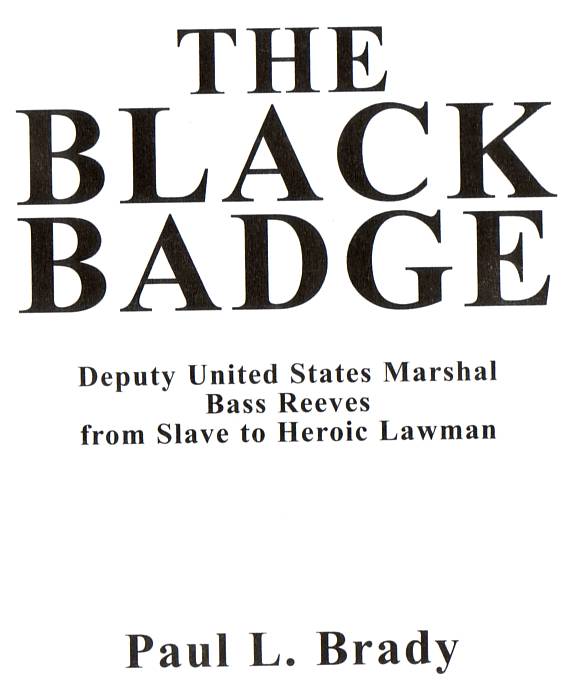 Paul Lawrence Reeves Wilson Brady, born 1927
Paul Lawrence Reeves Wilson Brady, born 1927
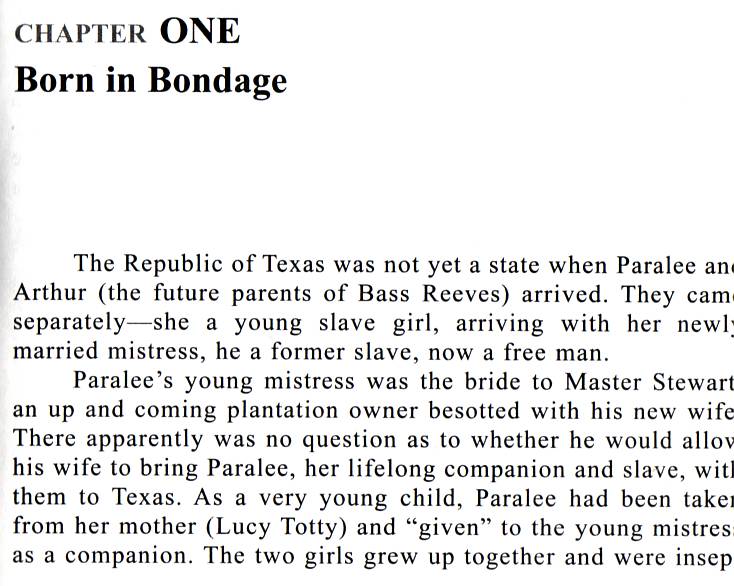
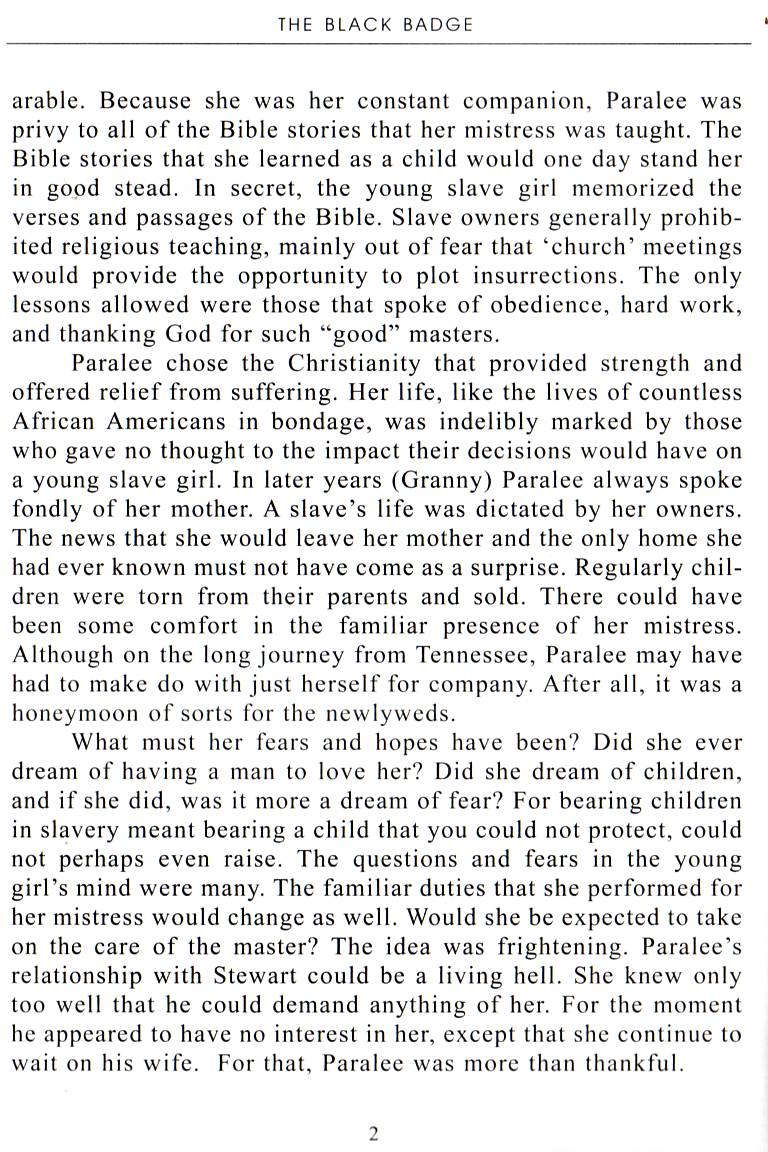
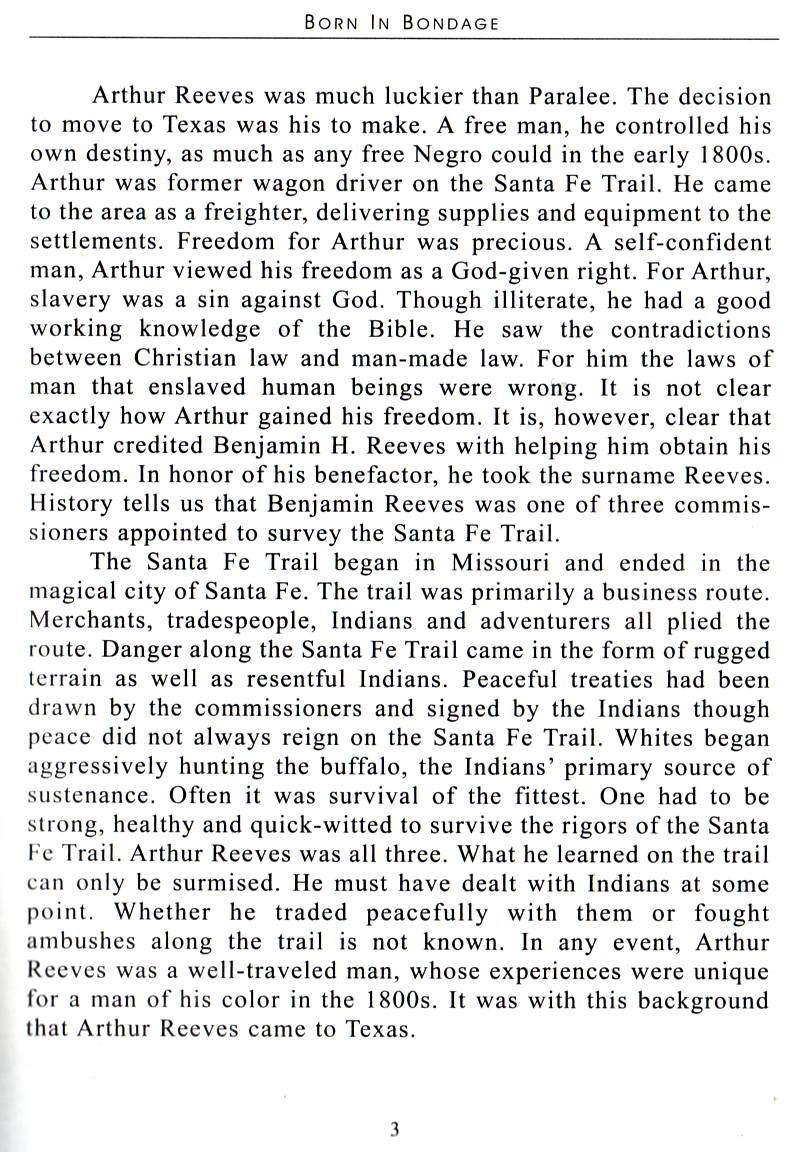
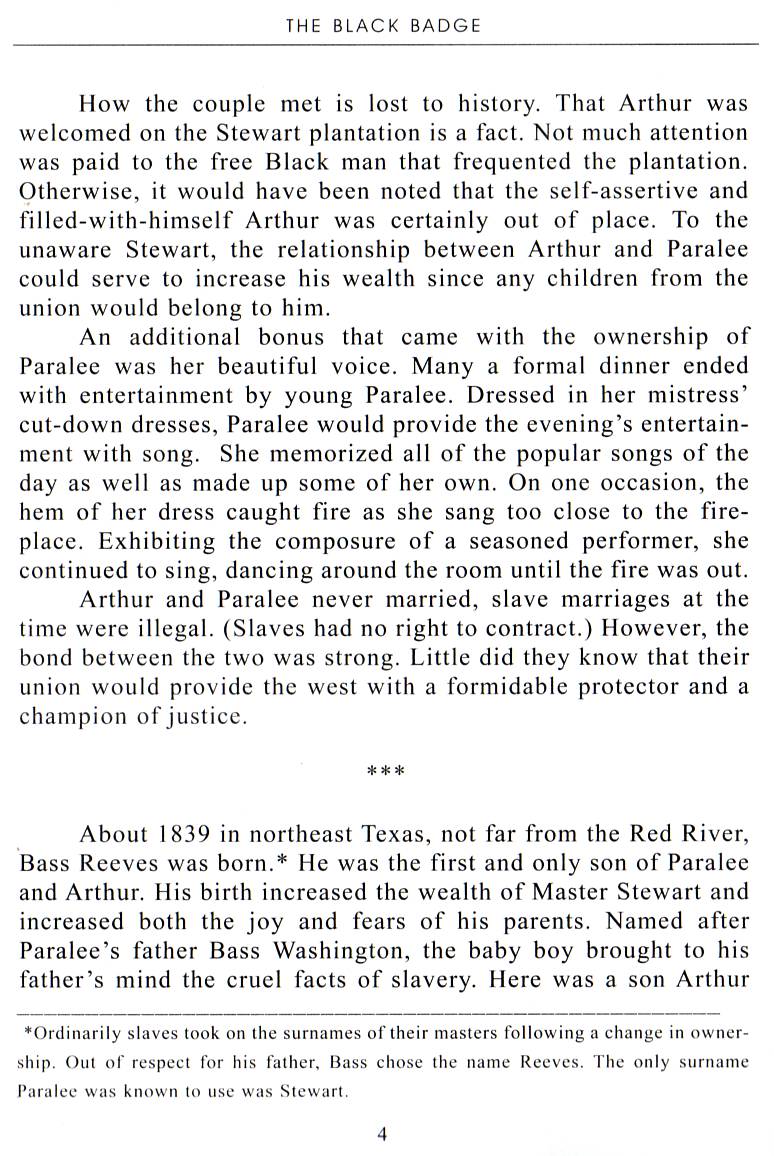
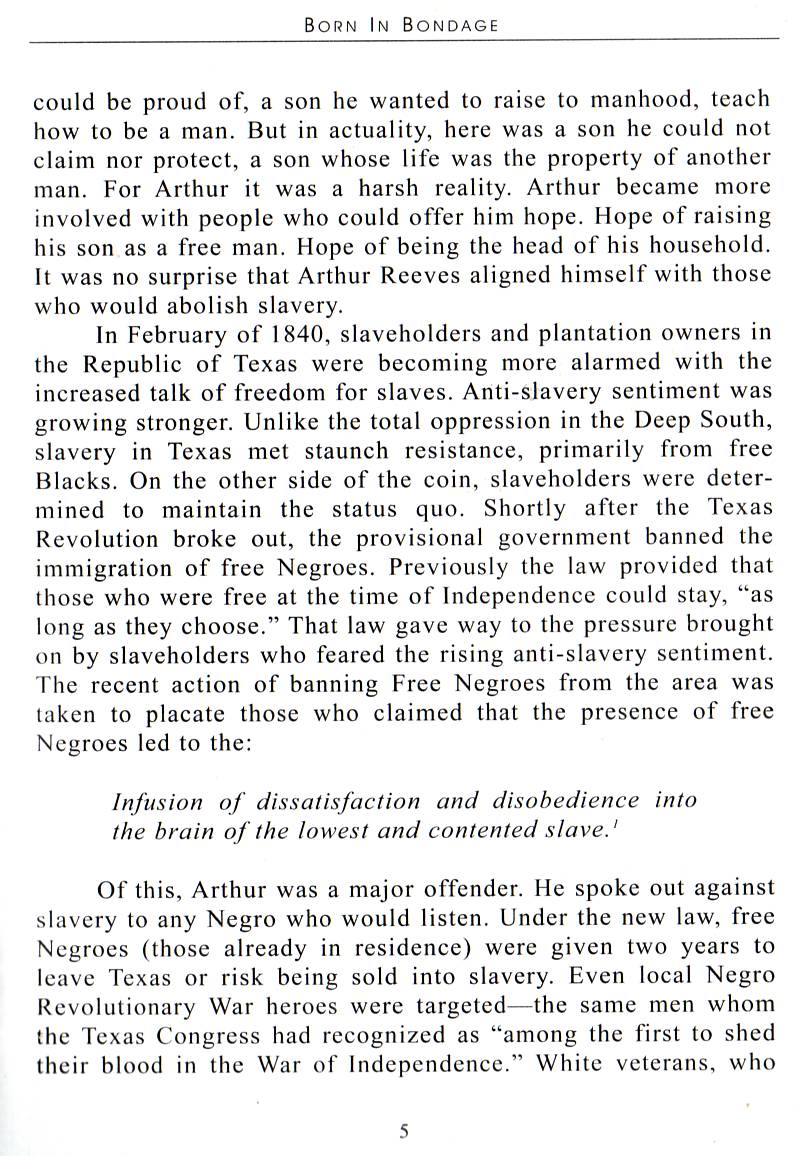
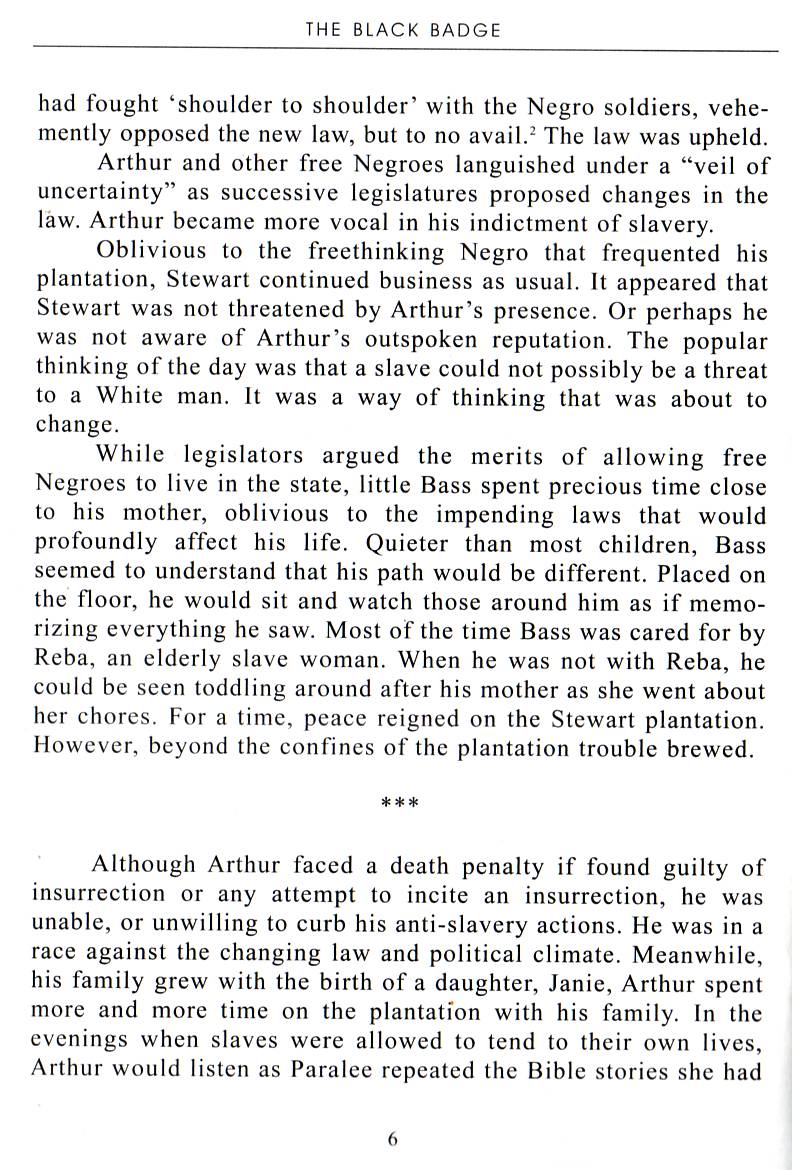
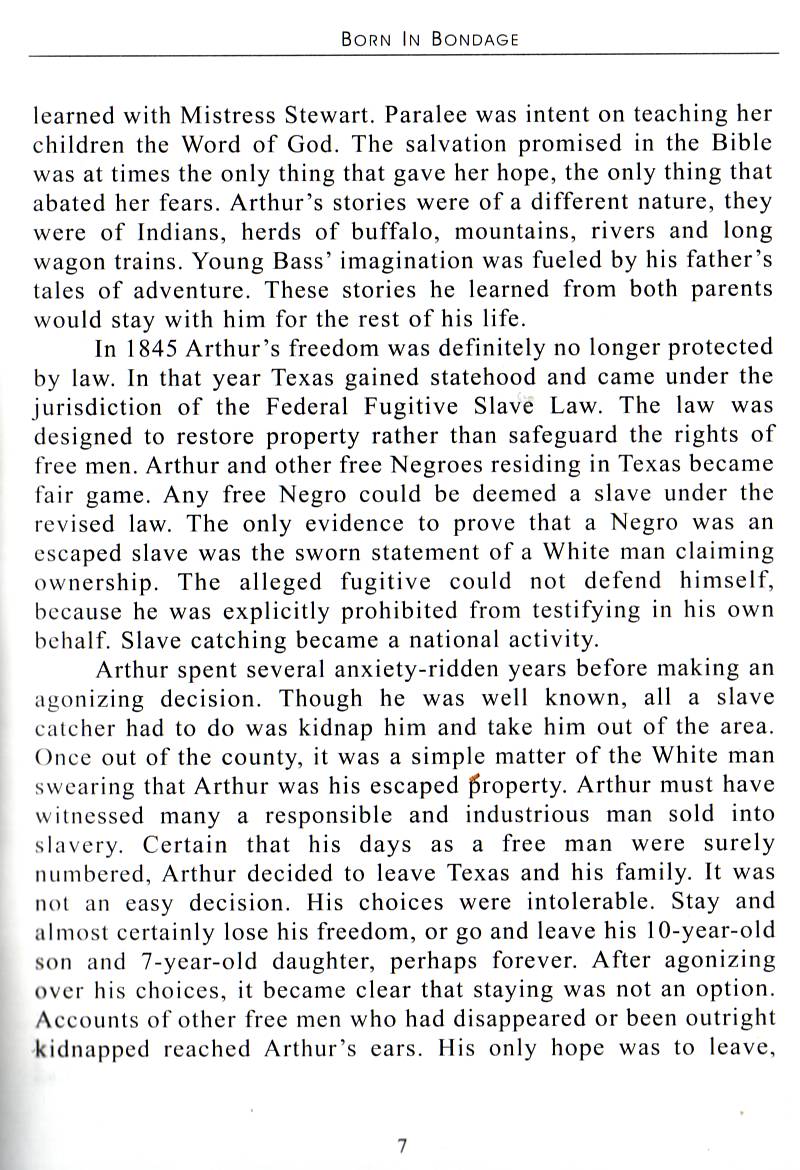
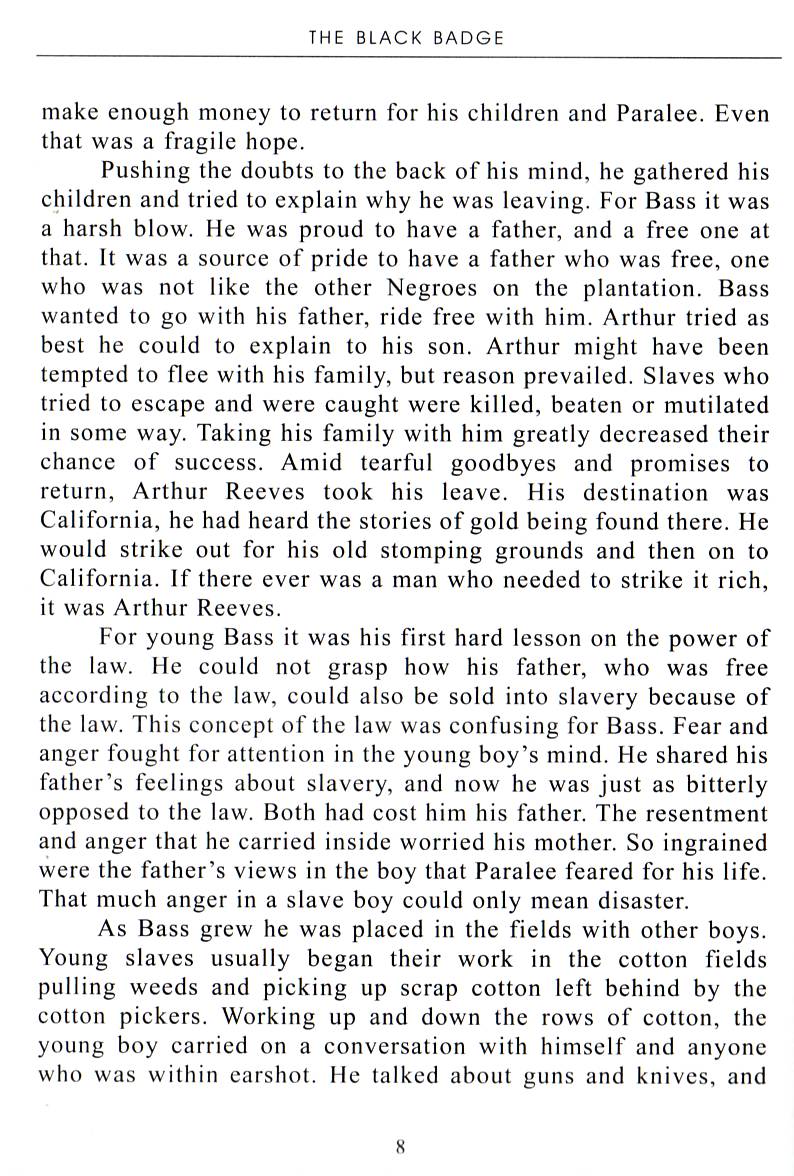
| 6 | Reeves, Arthur | Union | Infantry | 17th Regiment, United States Colored Infantry
We believe Arthur Reeves may have been the father of Bass Reeves per book entitled "The Black Badge" written by grand nephew and retired federal judge Paul Brady, Sr. Further research into unit archives are necessary to fully document. |
Our research indicates that Arthur Reeves may have been the person listed with that name in U.S. military archives as having served during the Civil War enlisted in Arkansas. We do not know for certain but indicators are he and his son Bass Reeves may also have known of each other following the war.
Whatever the case may be their stories offer the evidence that goodness did somehow prevail, and a good wife and good mother, Paralee, (daughter of Bass Washington and Lucy Totty, both likely born in Virginia), ... was able to live long enough to see it all come forth. In addition, and not to ever be ignored is that once again, as seen with so many families of African heritage, ... there were good White youth in the slave holding cultures who shared teachings of Christ with childhood friends legally enslaved by both church and state.
Indeed, it was never the church espoused by slave-owners or states enforcing slavery that our ancestors looked to for hope, ... but rather the good news of Jesus Christ. The greed and ruthlessness that characterized those early American settlers in Texas was very deep and determined, ... and even after the surrender of all other confederate forces after Lee surrendered at Appomattox fabled Texans fought on until June 19th, 1865 when the Union Army sent a special army into Texas to force release of slaves therein.
Ironically, it was slave owning Cherokee natives fighting for the confederate cause who literally refused to surrender until June of 1865 when they were overwhelmed by regiments of Black troops whose courage had assured their freedom from the hated institution, ... including the native Americans who were slave owners.